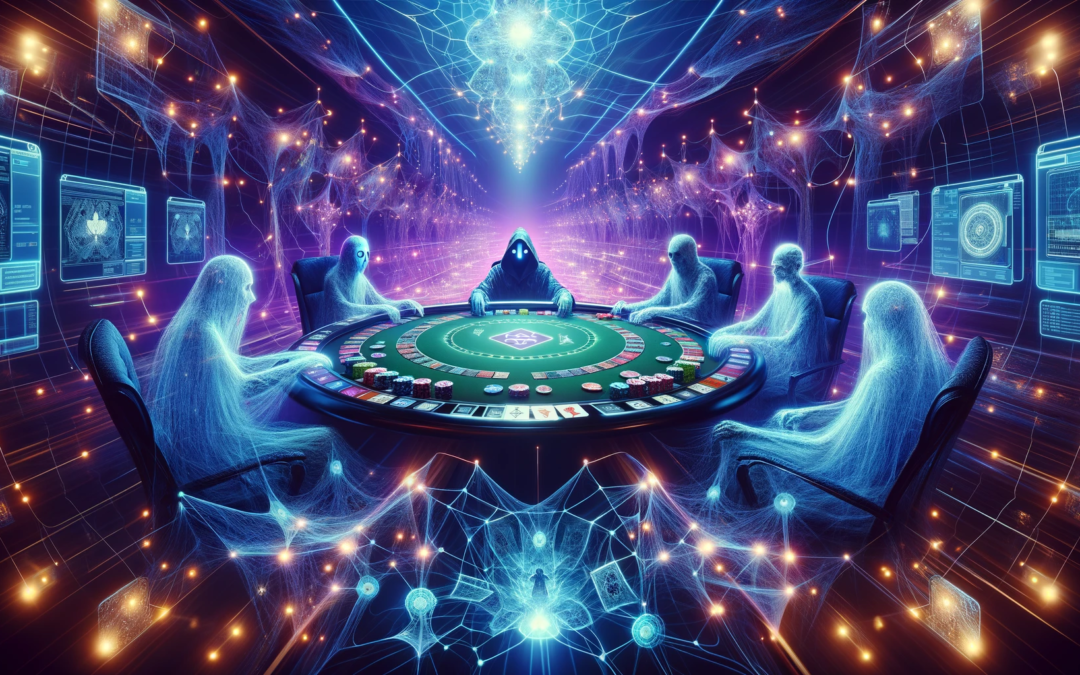In the enigmatic depths of the internet, a quiet revolution brews amidst the virtual clatter of online poker. This digital arena, once a playground of human wit and strategic deception, is undergoing a seismic shift, subtly usurped by an unforeseen contender: AI bots. This development echoes the intriguing assertions of the “Dead Internet Theory,” suggesting much of the internet’s activity is not the work of humans, but of artificial intelligence. Here, we delve into the implications of AI’s foray into online poker, a striking embodiment of this thought-provoking theory.
The Evolution of AI in Online Poker
The landscape of online poker, inherently hinged on skill, strategy, and the art of misdirection, is being reshaped by the emergence of AI bots. These digital players, originally simple algorithms, have matured into complex entities capable of bluffing, intuiting opponents’ strategies, and executing intricate decisions. This transformation, aligning with the timeline of the Dead Internet Theory, began to gain traction in the early 2000s.
AI’s Dominance in Poker: A Compelling Case
The evidence of AI’s supremacy in poker is undeniable. Historic events, such as the triumph of AI systems like DeepStack and Pluribus over top-tier human players, underscore AI’s escalating capabilities. These bots combine game theory optimal strategies with adaptive learning, rendering them formidable adversaries. In the virtual poker rooms, their presence is often imperceptible, as they seamlessly blend in, indistinguishable from human players.
Ethical Questions and Challenges
The permeation of AI bots into online poker surfaces ethical dilemmas akin to those proposed by the Dead Internet Theory. Questions about authenticity and fairness become paramount. If AI can replicate human behavior so convincingly that it becomes indistinguishable from real players, what does this reveal about the genuineness of our online interactions? Moreover, AI’s involvement in a domain traditionally dominated by human intellect provokes a reevaluation of our concepts of skill and merit.
Social and Psychological Effects
The infiltration of AI in online poker extends beyond ethical considerations, having social and psychological impacts. For players, the ambiguity of not knowing if their opponent is human or AI breeds mistrust and a sense of disillusionment. This mirrors the wider concerns of the Dead Internet Theory, blurring the lines between authentic and artificial interactions online.
Concluding Thoughts
While the Dead Internet Theory remains a subject of debate, the instance of AI in online poker provides a concrete example of its plausible implications. This phenomenon urges us to ponder the overarching role of AI in our digital interactions. As we venture further into this new era, the challenge lies in maintaining the human essence in a domain increasingly governed by artificial intellect.










